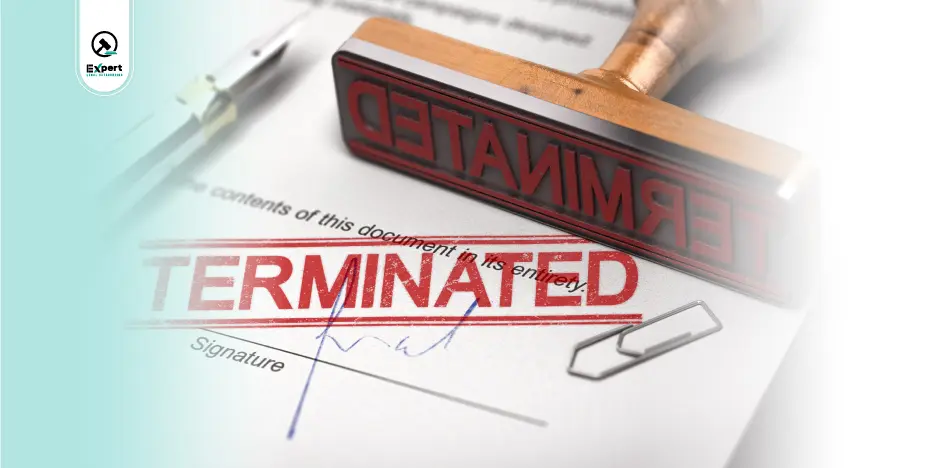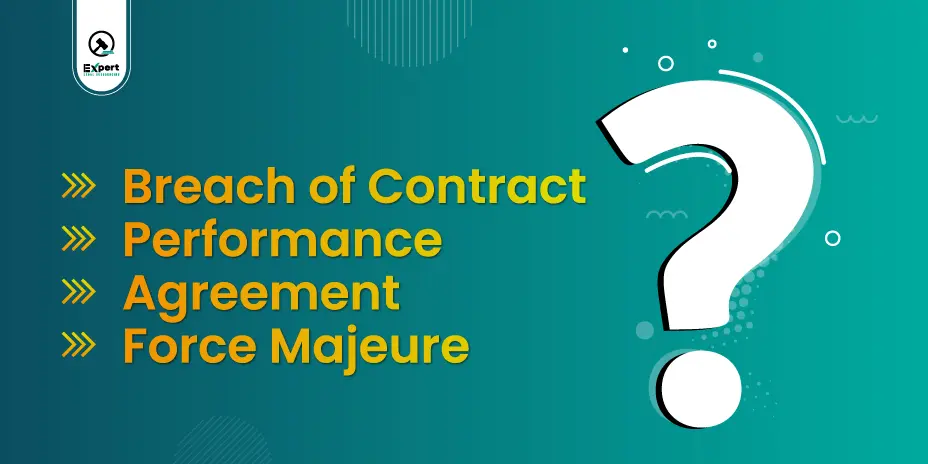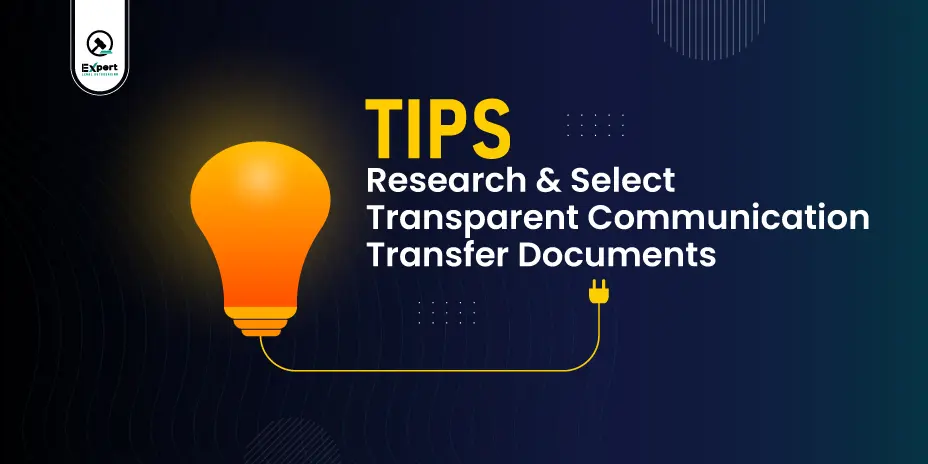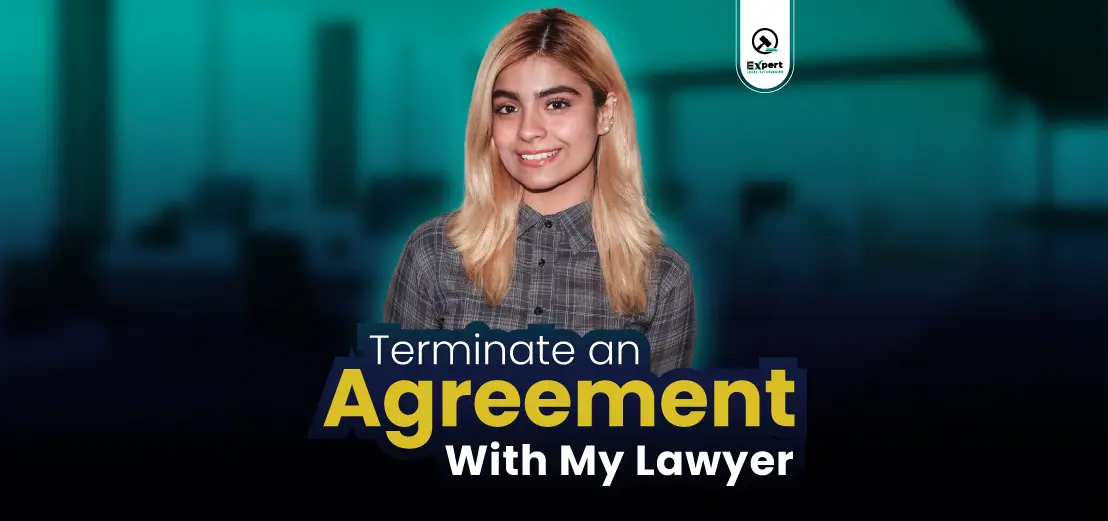The thought of terminating an agreement with one’s lawyer turns on one’s panic mode. Well, no need to panic anymore!
To make your life easier, we will answer your question on “How to Terminate an Agreement With My Lawyer” for you.
Here is an on-the-spot view of the steps you can follow:
- Review the Terms and Condition Agreement
- Check for Notice Periods or Termination Conditions
- Draft a Termination Notice
- Send the Final Notice
- Request a Final Invoice for Fees
- Retrieve all documents and case files
- Ensure lawyer’s withdrawal from cases
We will talk through this guide in detail, and tips for a graceful exit will be shared. So, without further a do, lets get into it.
Understanding Your Right to Terminate

The Attorney-Client Relationship
The Attorney-Client Relationship is a legal and professional bond between attorney and their client. Attorneys are obligated to maintain confidentiality with all the data that is exchanged between the attorney and his client. Whether you outsource your attorney services or not.
We are all aware of the benefits that outsourcing legal services hold. After reading this blog, if you would like to know more on the contract attorney hourly rates, you can check out our blog that gives a thorough cost breakdown and more.
When Can You Terminate Your Attorney?
Can I cancel a contract with a law firm a few days after signing? An attorney-client relationship can be terminated at any time. However, A signed contract has terms that need to be followed and respected.
Out of the various reasons behind terminating your relationship with your attorney, here are some:
- Dissatisfaction with the service they are providing
- Disagreement over strategy
- Financial concerns
- Personal reasons – it is okay to prioritize yourself
Reasons Clients Choose to Fire Their Lawyers
You might still be in doubt and asking “Can I cancel a contract with a lawyer after I sign a contract?”
Well, yes, you can and having a clear reason will support your cause.

- Breach of Contract
When your lawyer fails to fulfill their responsibilities under your agreement, it’s considered a breach of contract. This includes neglecting your case, missing deadlines, or providing inadequate representation.
If your lawyer breaches the contract, you may have grounds to terminate the relationship and seek legal remedies.
- Performance
If you’re persistently dissatisfied with your lawyer’s performance, you have grounds to terminate the relationship. This could include poor communication, lack of responsiveness, or a failure to achieve the desired results.
- Agreement
In some cases, your attorney-client agreement might have rules about when you can terminate the relationship. For example, it might say you can quit if you’re not happy with their work or if they fail to meet certain performance standards.
- Frustration or Force Majeure
In really rare cases, something unexpected might happen that makes it impossible for you to keep your lawyer. For example, if your lawyer gets really sick or if their law firm closes down, you may be forced to terminate the relationship
*Force Majeure is when something is beyond your control.
Note: While you generally have the right to terminate your attorney-client relationship, it’s important to understand the potential consequences of doing so. There may be fees associated with termination, and you may need to find a new attorney to represent you.
It’s advisable to consult with a new attorney to discuss your options and understand the potential implications of terminating your current relationship.
Steps to Terminate Your Lawyer
When you have decided you want to get out of a contract, the first thing is to send a formal termination letter. Make sure this is truly what you want to do, because once this letter is sent, it cannot be taken back. Moreover, among attorney-client relationships, such types of letters are considered final.

Drafting a Termination Letter
First, you have to review your contract, you start drafting a termination letter formally notifying your attorney of your decision. There are certain elements that you need to include in your letter.
If you do not have much time on your hand, you should check out the “10 Best Contract Management Software for Legal Departments in 2024”. Outsourcing this service will give you a strong letter at you door. The key elements will be present without you having to pull your hair over them.
Key Elements to Include in Your Letter
- Clear statement of termination: Clearly state your intention to terminate the attorney-client relationship.
- Reason for termination (optional): If you wish to provide a reason for your decision, do so briefly and professionally.
- Request for your files: Request that your attorney return all of your files and documents.
- Payment arrangements: If applicable, specify how you will pay any outstanding fees or costs.
- Effective date of termination: Indicate the date on which you wish the relationship to end.
Sample Termination Letter Template
Dear [Attorney’s Name],
Please accept this letter as formal notification of my intent to terminate our attorney-client relationship effective [date].
[Optional: Briefly state your reason for terminating the relationship]
I request that you return all of my files and documents related to this matter. Please let me know how I can arrange to pay any outstanding fees or costs.
Thank you for your attention to this matter.
Sincerely, [Your Name]
Delivering the Termination Letter
You can deliver the termination letter in person, by certified mail, or by email. If you choose to deliver it in person, make sure to obtain a copy for your records.
Request a Final Invoice for Fees
Collecting the final invoice signifies the ending of an agreement, which covers the balance due for the entire case or a specific service. That does not include any initial deposits, interim payments or credit already applied.
In the termination letter, mention request for a final invoice. This invoice is a conclusive statement. In our case of firing a lawyer, this document sends a clear message that no further billing will occur, unless agreed upon.
Double check whether the following information is present:
- Invoice number
- Supplier and Client details
- Description of services or goods
- Dates
- Totals
- Payment terms
- Additional notes (optional)
Retrieve all documents and case files
If you are ending your agreement in the midst of an on-going case, make sure to ask for all your case files and documents so you can forward them to your new lawyer. Without them, your new lawyer will be lost and they would have to start all from scratch.
Potential Consequences of Terminating the Agreement
Here is a breakdown on the possible consequences you might face:
Attorney’s Duties Upon Termination
Hidden Costs is the first issue you must tackle. Be prepared for potential additional fees, such as those for reviewing your case file or for work already completed.
Delays are another factors that needs to be dealt with. Finding a new lawyer and getting them up to speed can significantly delay your case.
A sudden change of representation could be a potential harm to your case’s outcome, especially if it’s in a critical stage.
Enforcing Your Attorney’s Fee Lien
Financial Implications: If your lawyer has an outstanding fee, you may need to negotiate or go to court to resolve it. This can be time-consuming and costly.
Finding a New Lawyer
Depending on the complexity of your case and your geographic location, finding a suitable replacement might be challenging.
Avoiding Termination Issues
Maintain open and honest communication with your lawyer from the beginning to address any concerns or issues promptly.
If you’re unhappy with your lawyer’s approach, explore other options within the firm or discuss your concerns directly.
Schedule regular meetings with your lawyer to review progress, discuss concerns, and ensure you’re on the same page.
After The Terminating Letter – Seeking New Representation
After you have sent out the termination letter to your current lawyer, don’t wait. Start your search for a new attorney so that you can protect your rights and avoid delays in your case.
Once you have found the ideal lawyer for your case, share all relevant information. This includes, all the case files, previous strategies, and concerns you had with your former lawyer.
When evaluating a potential candidate to take over, thoroughly investigate those who are experts in your type of cases. Experience, reputation, communication style, and fees plays a role in choosing the candidate. Schedule consultation sessions to get a gist of them.
During the consultation, ask the lawyer of their experiences and clarify their fee structure and payment terms. End it with your expectations and concerns so that things are out there in the open.
Once the interview sessions are over, trust your instincts when choosing your next attorney to-be. Select the one that makes you feel comfortable and confident. A good lawyer always listens and advocates with your best interests in mind.
Tips for a Graceful Exit

It is important to plan a smooth transition to a new attorney. Here are some suggestions:
Research & select a new lawyer
Firstly, qualification and experience matters. An attorney’s level of expertise is vital in order for them to handle your cases efficiently.
Next, Compatibility. An attorney’s way of communicating, approach, and fees decides whether the candidate is appealing or not.
Lastly, referrals and reviews. Looking up reviews of clients on the firm and lawyer can be found online. You can also consult family and friends to give you recommendations.
Communicate openly and professionally with the current lawyer
Start with sending a detailed notice, clearly communicating your decision to terminate the relationship and provide a reasonable notice period if required by your contract.
Request necessary documents from your current attorney. Make sure that your attorney provides you with all relevant documents and information related to your case.
Lastly, it is important that your case files are transferred to the new attorney without any extra issues. Work with your current attorney to facilitate a smooth transfer.
Transfer necessary documents and information to the new lawyer
You need to first, collect all relevant documents, such as correspondence, pleadings, discovery materials, and expert reports.
Then, organize the materials in a way that makes it easy to access, then transfer them securely to the new attorney. We want to avoid data leak so security is a must.
If the termination takes place in the middle of a case, you need to ensure that both attorneys have your contact information and are aware of any upcoming deadlines or court dates.
Legal Considerations
Cooling-Off Periods and Local Laws
There is no universal “cooling-off” time frame after terminating an attorney-client relationship. However, there might be rules in your local area about how long you have to wait before breaking up with your lawyer. Check your state’s laws or your lawyer contract to see if there’s a ‘cooling-off period.
Handling Fee Disputes
There is a probability of having a dispute with your attorney regarding the costs, you need to address it as promptly and professionally as possible.
Star with review the agreement again, specifically the fees and termination section. Collect any relevant documentation, such as invoices, payment records, and correspondence.
Consider resorting to mediation or arbitration to sort out the fee disputes before involving a law suit. If even that doesn’t work out, consulting with a new attorney to advise you on your rights and options.
Resources and Support
Once you have completed your attorney-client relationship termination process, the stress of finding yourself a new attorney will take over. To help you out, find yourself on FindLaw, this is one of the largest US Legal Directory to search for attorneys and law firms.
The directory will provide you will experienced lawyers, but they might cross your budget. So, a quick advice would be searching up legal process outsourcing companies and grinding yourself a virtual assistant, which will cost you nothing compared to hiring a lawyer directly.
The virtual assistant will guide you with finding you a budget-friendly lawyer and before that they will also clear out any confusions you might have such as ‘how do you get out of a legal agreement?’
The legal process outsourcing services with include the following:
- Law Firm Back Office – Check out our blog on “What is Back Office Outsourcing?”
- Legal Spend Management Software
- Contract Management Software for Legal Departments
- Outsourcing Legal Document Review Services
The best part about outsourcing your services is that you only pay for the service you need, thats it. Saves costs, especially after dealing with the consequences of terminating an agreement with a lawyer.
Conclusion
Terminating an agreement with your lawyer is not a piece of cake, but being determined about your goals makes the entire process worth the challenge. With the help of this guide, organizing and preparing for the termination process will be smoother than usual.
From reasons to fire your lawyer to delivering the termination letter, all has been discussed in detail in this blog.
Don’t wait any longer, hire a virtual assistant and proceed with hiring a new lawyer with the help of a Legal Process Outsourcing company.
[sp_easyaccordion id=”27442″]

Rafia Alam Rowshni delivers a unique combination of legal knowledge and content creation talent using SEO Tools and SERP analysis. She has a solid background in public health and legal services and knows the complexities of the legal world. She can translate complex subjects into simple, concise, and entertaining information that audiences can actually use.




